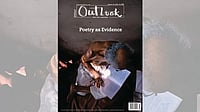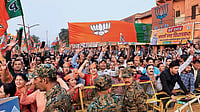The Adivasi Academy in Tejgadh, 90 km from Baroda, is neither a university nor a college—it’s actually a one-of-its-kind experiment, unfolding under a charming red-roofed learning centre at the foot of a historic hill. The staff jokingly refers to it as the London School of Economics for adivasis, and in many ways, it’s more than that, filling the gap left by government-run tribal research and training institutes, which owing to their fusty methods have largely failed to educate the community. The academy, run by tribals theselves, provides institutional leadership to tribals with stress on the revival of traditional knowledge systems and languages. The 10-acre campus houses open-air classrooms, a sprawling library, a museum of rare artifacts and documentation of endangered tribal languages, plus a dorm for its 35 resident students. Dr Ganesh Devy, who founded the academy and has left it for the community to run as its own, says, “The academy helps them take pride in their own culture. The community has developed a strong sense of ownership over their activities and are obviously proud of it. It has led to a good combination of confidence, hope, and knowledge of operations.”
It offers two post-graduate diplomas at the moment, one in culture and development, the other on art and culture. It also offers a certificate course in rural health. Students and teachers interact informally, there are no prescribed textbooks, blackboards are hardly used. Also part of the academy is an experimental school for children of migrant parents. These students live on campus and are taught in their own tribal languages. On graduating, most students go back to work in their villages.






















